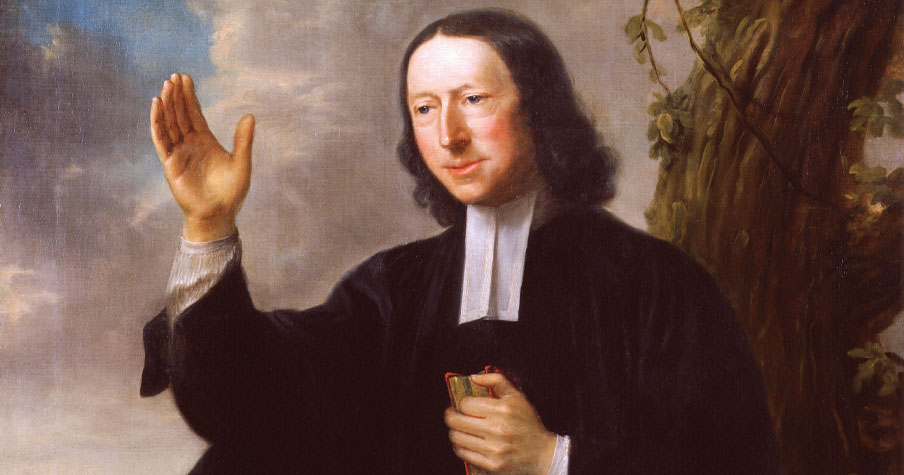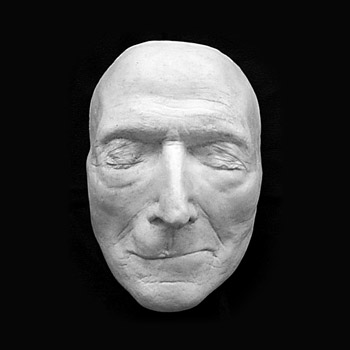
©National Portrait Gallery, London
It has been 230 years since the death of John Wesley, the Oxford-educated Anglican priest and founder of Methodism. You can, however, still gaze upon his face – or the closest thing to it – in the Methodist Archives at Drew University in Madison, New Jersey, home of Drew Theological Seminary.
Just a few hours after Wesley’s death on March 2, 1791, as his body lay in its casket, Nicholas Ridley made a plaster facial cast of the religious leader. This practice was common in the 18th century, and the existence of this death mask reveals some facts about Wesley that might otherwise have been lost to time. For instance, the mask shows the right side of Wesley’s mouth drooping slightly – evidence that he had perhaps suffered a stroke. And the bump on his upper right lip suggests that his teeth were crooked.

Wesley, age 63, by Nathaniel Hone the Elder, and at 88, by Nicholas Ridley.
Portraits of John Wesley show differences in his appearance, so the mask also helps set the record straight: “Some of the typically common features of the portraits are accurate, especially the prominent nose,” reads the interpretive note accompanying the mask.
Drew acquired this mask of John Wesley after one of its trustees, Anderson Fowler, purchased part of the estate of George Osborn in England in 1880. Osborn had been a leader in British Methodism. While the mask from the Osborn estate is deemed authentic and is the only known surviving one of its kind, Drew had several replicas made in 1990. They were given to Duke University, Southern Methodist University, and Rylands Library at the University of Manchester. (The one on display in the classroom is also a replica – the original is tucked safely away.)